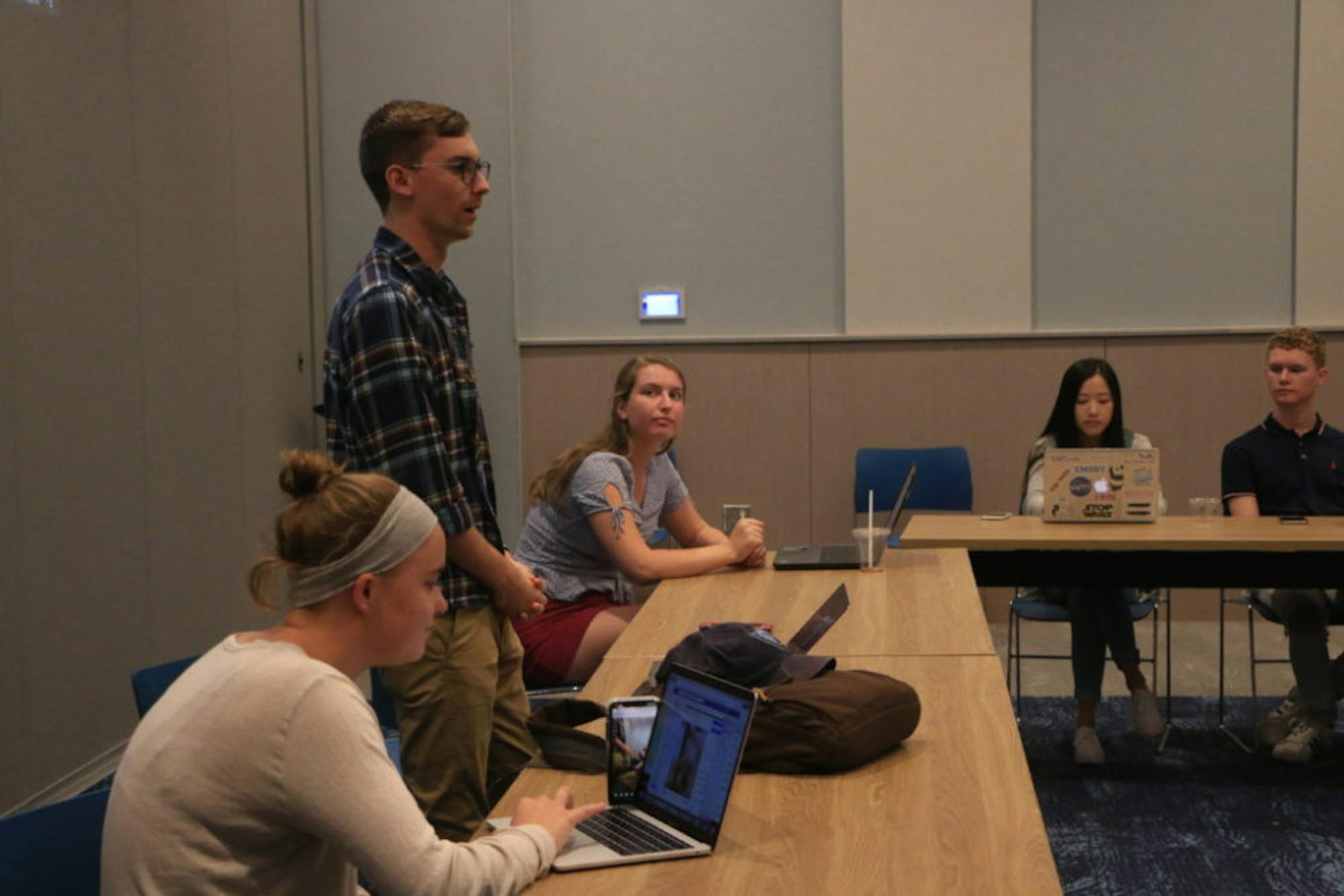
The 53rd legislature of the Student Government Association (SGA) passed a resolution codifying the Emory Student Bill of Rights on Monday. The Emory chapter of the National Association for the Advancement of Colored People (NAACP) gave a presentation about an upcoming series of events celebrating black culture during the first-ever Black Homecoming Week, which will be held throughout the week of Oct. 28.
Student Bill of Rights
The Emory Student Bill of Rights, authored by College Council (CC) Chief of Staff Alex Chanen (21B), was adopted by all four divisional councils before it appeared before SGA. The resolution states that all students should be guaranteed certain rights such as the right to food security, the right to feel safe on campus and the right to have their voices heard.
“This is a call to action. This is a message that we stand by this,” Chanen said, adding that he hopes that the passage of the resolution will enable “conversations” about some of these issues.
The resolution passed with nine votes for and one legislator, senior Jasmine Cui (20C), voting against.
In an interview with the Wheel, Cui said she opposed the resolution because she would have preferred an amendment to Article II, Section 1 of the Student Rights and Responsibilities in the Student Constitution of Emory University.
“I think that we really do need to work to create more plans that are actionable, and I think the first step would have been to try and propose an amendment to the constitution,” said Cui. “As someone who is a low-income student and comes from a family where one of my parents is incarcerated, I think it’s frustrating to hear people who pass resolutions like this. How does this help me? … I opposed it on principle.”
In an email to the Wheel, Chanen said that while he was “open” to the idea of amending the Constitution, the Bill of Rights aims for “undergraduate-wide agreement on the principles and rights included in the resolution.”
Black Homecoming Week
Members of the Emory NAACP presented to SGA plans for a Black Homecoming Week from Oct. 28 through Nov. 2. The week is dedicated to the cultural celebration of the black Emory community and bridging the community to the wider Emory population. Emory NAACP began working on plans for a homecoming week in May of last year.
The week will involve a field day on Monday, a Black in Business panel on Tuesday, a 5-kilometer fundraiser run to support Maynard Holbrook Jackson High School (Ga.) on Wednesday, a multicultural food night on Thursday, a block party by the African Student Association (ASA) on Friday, a collaborative showcase on Saturday and a Black Alumni Brunch on Sunday.
Emory NAACP President Timothy Richmond (20C) expressed the group’s desire to work with SGA after hearing that SGA President Ben Palmer (18Ox, 20C) and SGA Vice President Lori Steffel’s (21B) campaign platform included developing “connections with the black community.”
Emory NAACP Vice President Madisyn Kenner (22C) said the need for a Black Homecoming Week comes from “a segregation that exists within the community” at the University. Kenner appealed for the “health and well-being of our black students on campus,” citing “dissension within the community” due to recent events that saw two Emory Law professors use the N-word in their respective classes in September.
Free Tampons and Pads Available in 3 Bathrooms
As a part of the free tampons and pads initiative, menstrual products are now available in the bathrooms in the Dobbs Common Table, Cox Hall Food Court and Cox Hall Ballroom.
In an interview with the Wheel, Steffel said that these bathrooms had been chosen because they are not managed by Building and Residential Services but are overseen by Campus Life. Director of Campus Life Benjamin Perlman (03C) expressed interest in the initiative and gave immediate approval to proceed with it.
Steffel said that Building and Residential Services is requesting data about the number of bathrooms to which SGA would like to expand the initiative.
“They want to know whether we are putting them in men’s bathrooms for individuals who identify as male but have this need as well [and] whether we are putting them in gender-neutral bathrooms,” Steffel said, adding that Building and Residential Services want to understand “what action is required by them.”
Steffel said the initiative is currently funded by the Student Center Operations and Events’ budget and, if expanded, will be funded by Building and Residential Services’ budget.







